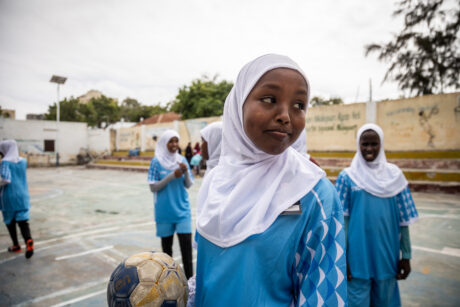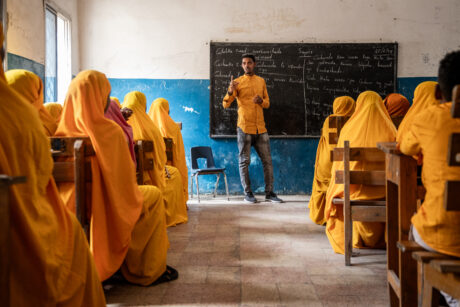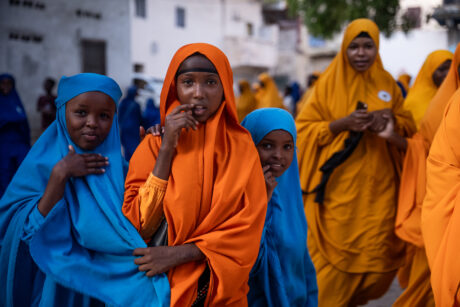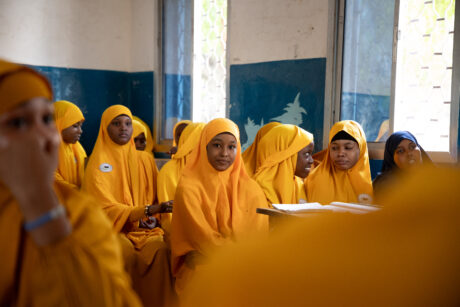The USAID Bar ama Baro wraps up an intensive, nine-day training for a cadre of teacher trainers working in Somalia’s accelerated basic education programMogadíscio, SomáliaMais do que 130 formadores de professores, escritores de materiais de aprendizagem e funcionários do Ministério da Educação da Somália, Cultura e Ensino Superior (MoECHE) participou num extenso evento de formação de nove dias que representa um marco importante na expansão sem precedentes da educação básica acelerada do país (ABE) programa.
O workshop prepara os participantes para compartilhar seus novos conhecimentos para melhorar as habilidades de um grupo adicional 3,000 professores de todo o país encarregados de promover o programa ABE da Somália, que visa proporcionar educação básica a gerações de jovens cuja educação formal foi interrompida por conflitos, fome e instabilidade.
“Garantir que todas as crianças somalis tenham acesso a serviços equitativos, a educação inclusiva e de qualidade é uma prioridade máxima para o governo da Somália,” diz o Diretor Geral do MoECHE, Mohamed Abbi Hassan. “Através da parceria com o programa Bar ama Bar da USAID, estamos alcançando mais crianças somalis com educação de qualidade, que contribuirá positivamente para a segurança, desenvolvimento social e económico deste país.”
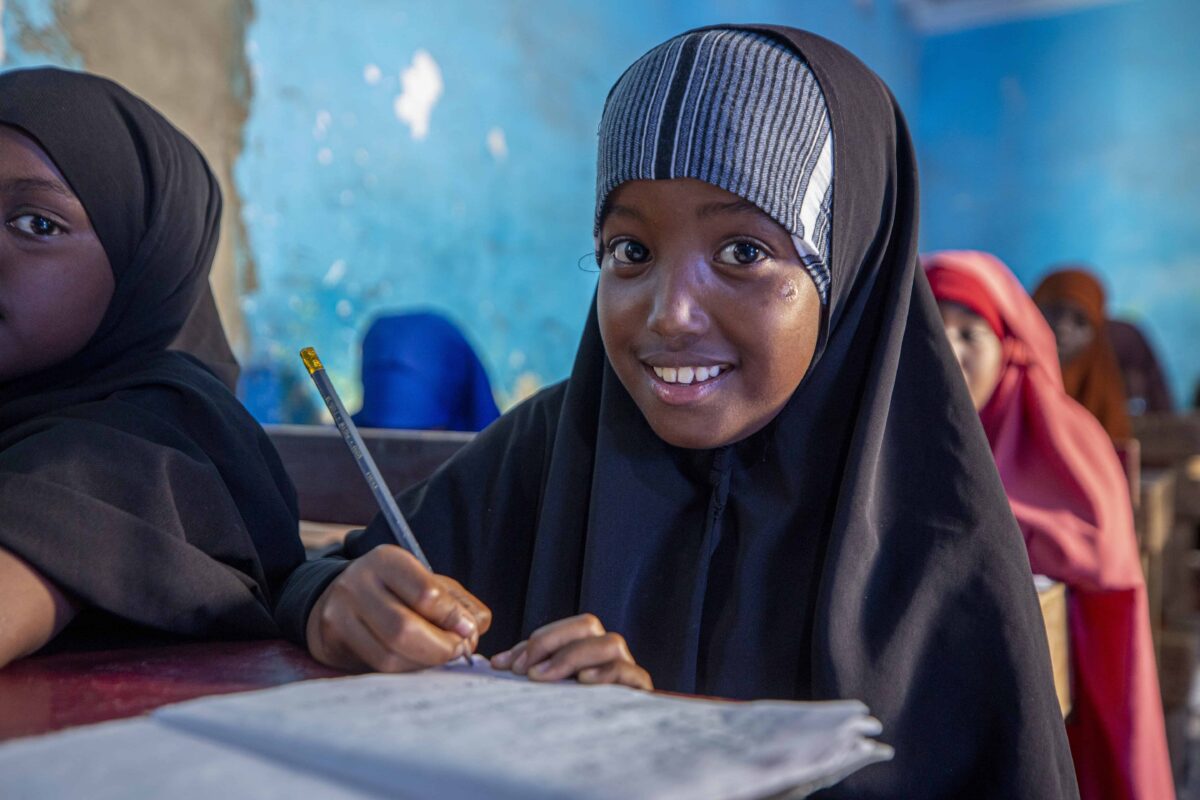
Liderado por uma equipe de especialistas, incluindo dois professores da Universidade Nacional da Somália, e o Instituto de Formação de Professores de Jubaland, o treinamento é um componente do NÓS. Agência para o Desenvolvimento Internacional (USAID) Barra ou Barra (BAB) projeto, um programa de educação primária de cinco anos que apoia o Governo da Somália na concepção e entrega de programas abrangentes, serviços de educação inclusiva.
Barra ou Barra, que significa “ensinar ou aprender” em inglês, está implementando um programa ABE para melhorar o acesso e a qualidade da educação para crianças fora da escola 9 para 18 através da implementação direta nos Estados-Membros Federais do Sudoeste, Jubalândia, Hirshabelle and Banadir. Somalia’s ABE condenses eight years of the formal curriculum into four, cobrindo árabe, Inglês, ciência, estudos sociais, somali, Tarbiyah e tecnologia – garantindo que os alunos possam reingressar no sistema escolar formal nas séries 2 ou 4 ou obter Grau 8 certificação de nível.
Mais do que 100,000 espera-se que os alunos se beneficiem do novo currículo, métodos de ensino, materials and non-formal learning centers developed by BAB in cooperation with the MoECHE. This expansion follows the ABE Policy and Curriculum Framework inaugurado em abril 24, 2021, e um piloto realizado com mais de 40,000 estudantes durante 2022. Por 2023, aproximadamente 1 milhões de livros didáticos ABE, guias do professor e materiais de leitura complementares serão distribuídos.
O workshop de nove dias em Mogadíscio incluiu sessões sobre o currículo condensado e como iniciar e gerir centros de aprendizagem não formal, manter a matrícula do aluno, monitorar a qualidade e a importância de envolver os pais e outros membros da comunidade.
Outras sessões abordaram pesquisas sobre atividades instrucionais baseadas no cérebro, métodos técnicos de ensino para trabalhar com leitores iniciantes, técnicas participativas para promover a numeracia e a resolução de problemas, identificando as necessidades dos alunos ABE e trabalhando com testes de colocação ABE.
Bar adora Baro's Chefe do Partido, Faiza Hassan, Ph.D., aplaude a colaboração entre os formandos, e adiciona: “Estamos muito felizes por sermos parceiros do MoECHE e dos Ministérios da Educação dos Estados Membros Federais no design, desenvolvimento e implementação deste programa nacional de educação básica acelerada que visa atender às necessidades da grande população fora da escola no país. Juntos continuaremos a reconstruir o sistema de ensino público da Somália para que todas as crianças tenham a oportunidade de aprender.”
Sessões de trabalho mais envolventes
Os participantes disseram que o design do treinamento e a incorporação de trabalho interativo entre os diversos participantes tornaram as sessões mais envolventes e propícias ao aprendizado. Além disso, muitos dos formadores de professores disseram que a orientação clara fornecida durante as sessões criou um modelo fácil de replicar quando começaram a fornecer instruções a professores em todo o país.
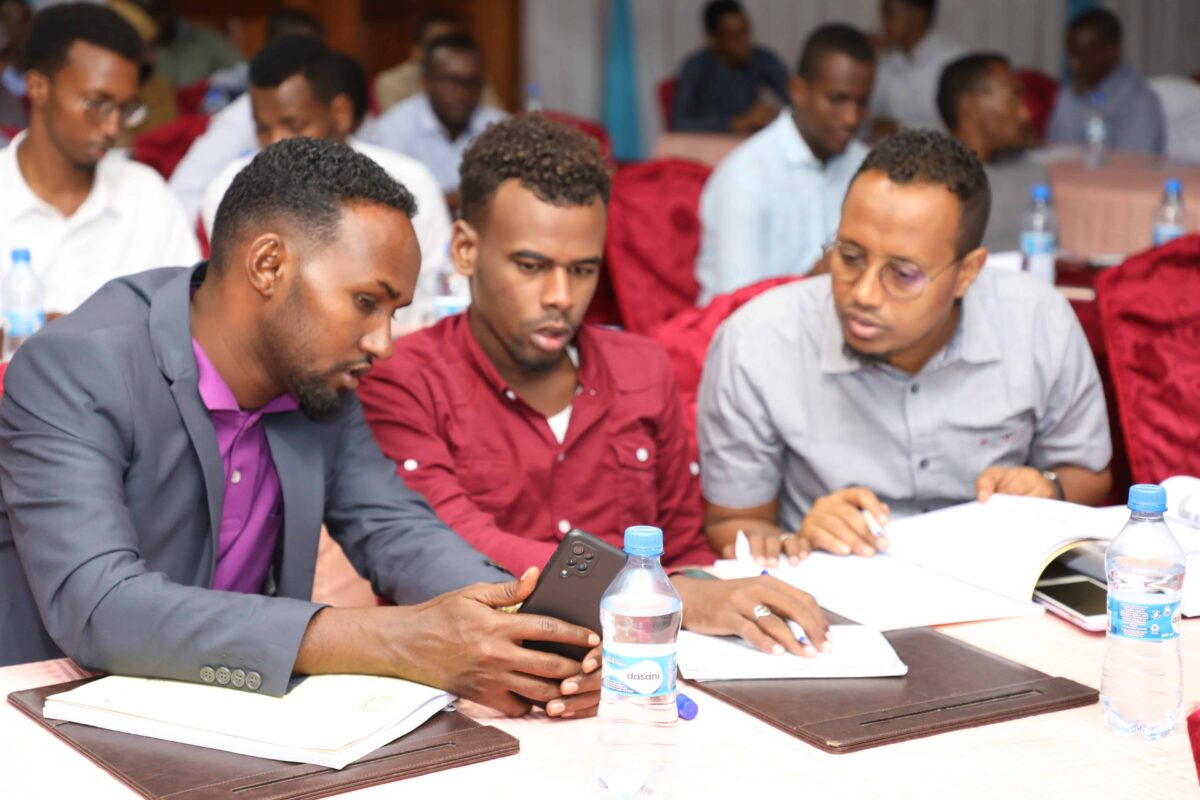
Abdirazak Xeique Mohamed, formador de professores do MoECHE desde 2000, diz que a aula de gestão foi particularmente útil para ele “porque oferecia instruções passo a passo sobre como ensinar e administrar aulas”. O seminário de nove dias foi diferente dos treinamentos anteriores dos quais ele participou porque foram “mais interativos e práticos, envolvendo trabalho individual e em grupo,”ele diz.
“É fácil seguir ou ensinar,Abdirazak diz. “Este programa bem desenvolvido e focado ajudará a melhorar a qualidade da educação na Somália. Os professores também se beneficiarão muito com as técnicas e o treinamento oferecido.”
Ahmed Ali Shire, um facilitador no treinamento, disse que ficou impressionado com a importância que o novo currículo atribui aos educadores da ABE. “Isso é importante porque o professor é o maior agente de mudança,”ele diz. “Eles são responsáveis pela retenção dos alunos e pela melhoria dos resultados de aprendizagem.”
Tal abordagem ao papel dos professores é “mais eficaz em comparação com a tradicional,”Ahmed diz. Os treinamentos melhoram a qualidade do professor, o que pode levar a melhores resultados de aprendizagem e criar um ambiente de aprendizagem seguro para os alunos da ABE, ele diz.
“Não deveria ser um programa único, deveria ser sustentável,”ele acrescenta.
Jaime Oberlander, USAID/Somália Diretor do Gabinete de Serviços Sociais, diz sobre o treinamento de nove dias e o programa acelerado de educação básica: “Os Estados Unidos têm orgulho da parceria com a Somália para fornecer mais 100,000 com oportunidades de obter alfabetização fundamental, numeramento e habilidades para a vida. Através Barra ou Barra, A USAID está a contribuir para desenvolver as competências dos professores para satisfazer as diversas necessidades dos alunos, ajudando-os a ‘recuperar o atraso’ para reentrar no sistema escolar formal ou fazer a transição para a formação profissional ou de subsistência.”
Com edição e redação de Sabra Ayres em Chevy Chase, Maryland.
